In the following code:
#include<iostream>
using namespace std;
int main()
{
int A[5] = {10,20,30,40,50};
// Let us try to print A[5] which does NOT exist but still
cout <<"First A[5] = "<< A[5] << endl<<endl;
//Now let us print A[5] inside the for loop
for(int i=0; i<=5; i++)
{
cout<<"Second A["<<i<<"]"<<" = "<<A[i]<<endl;
}
}
Output:
The first A[5] is giving different output (is it called garbage value?) and the second A[5] which is inside the for loop is giving different output (in this case, A[i] is giving the output as i). Can anyone explain me why?
Also inside the for loop, if I declare a random variable like int sax = 100; then A[5] will take the value 100 and I don't have the slightest of clue why is this happening.
I am on Windows, CodeBlocks, GNUGCC Compiler
